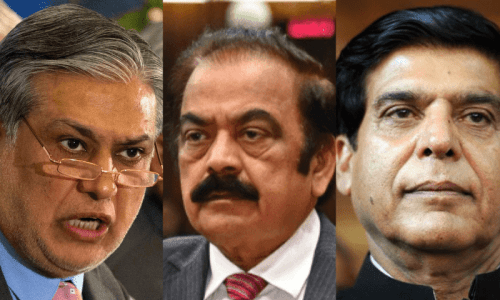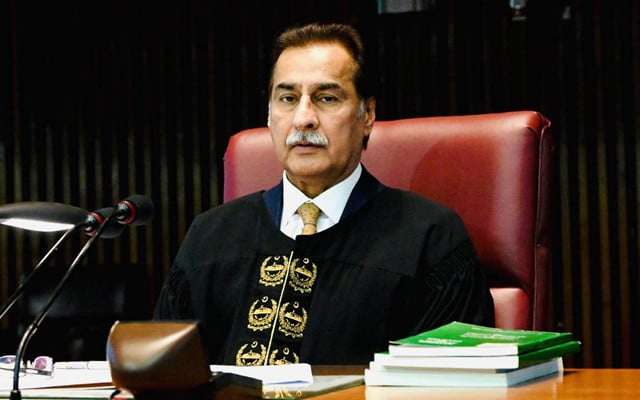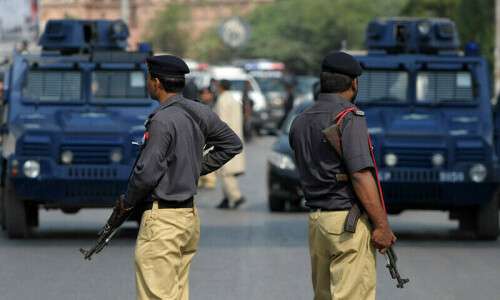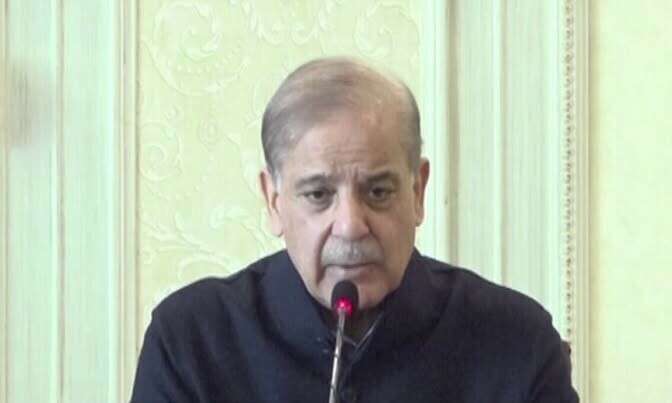In a move that has captured the attention of political observers across Pakistan, Prime Minister Shehbaz Sharif has formed a dedicated negotiation committee following the recommendations of National Assembly Speaker Sardar Ayaz Sadiq. The committee’s mandate is to engage in discussions with the Pakistan Tehreek-e-Insaf (PTI), the political party headed by former Prime Minister Imran Khan. This development comes amid mounting political tension and concerns over national security and stability.
Background of the Negotiation Effort
The political landscape in Pakistan has been increasingly polarized, particularly after the events of May 9, 2023, and November 26, 2023, which sparked protests and civil unrest. In December, PTI’s Imran Khan issued a strong warning to the government, calling for civil disobedience unless his demands were met. These demands included the release of political prisoners facing trial and the formation of a judicial commission to investigate the incidents of May 9 and November 26.
Imran Khan’s call for civil disobedience has added fuel to the political fire, prompting government officials to take action. On December 5, Khan made his position clear, stating that the PTI would resort to a nationwide civil disobedience movement if the government failed to address the party’s concerns. This warning made the need for dialogue between the government and PTI more urgent than ever.
The Committee’s Formation and Composition
Following the intervention of National Assembly Speaker Sardar Ayaz Sadiq, Prime Minister Shehbaz Sharif announced the formation of the negotiation committee. The committee, according to a statement from the Prime Minister’s office, consists of senior government officials and political figures with the mandate to open channels of communication with PTI.
The following prominent figures have been included in the committee:
- Deputy Prime Minister Ishaq Dar – A key member of the ruling Pakistan Muslim League-Nawaz (PML-N), Dar has previously served as Finance Minister and is known for his diplomatic skills.
- Foreign Minister Rana Sanaullah – Another senior figure within the PML-N, Sanaullah is recognized for his strong political stance and experience in handling sensitive negotiations.
- Senator Irfan Siddiqui – A respected politician and intellectual, Siddiqui brings a wealth of experience to the committee.
- Raja Parvez Ashraf and Naveed Qamar – Representatives from the Pakistan Peoples Party (PPP), Ashraf and Qamar are expected to bridge the gap between the ruling government and PTI.
- Dr. Khalid Maqbool Siddiqui – Leader of the Muttahida Qaumi Movement-Pakistan (MQM-P), Siddiqui’s inclusion reflects the government’s effort to engage with all political parties for a broad-based solution.
- Federal Ministers Aleem Khan, Chaudhry Salik Hussain, and Sardar Khalid Magsi – These figures represent key sectors such as privatization, religious affairs, and provincial interests, making them essential to the committee’s work.
The committee’s formation reflects the government’s commitment to addressing political tensions through dialogue, as opposed to further confrontation. The committee is expected to play a pivotal role in navigating the complex political landscape and fostering an environment of mutual respect and cooperation.
The Role of National Assembly Speaker Sadiq
Sardar Ayaz Sadiq, the Speaker of the National Assembly, has been instrumental in facilitating negotiations between the government and opposition. He has long advocated for dialogue as the best way to resolve political disputes and ensure national harmony.
Sadiq’s office, according to recent statements, has been open 24 hours to both government and opposition representatives. His proactive stance and willingness to mediate have earned him praise from all quarters. Sadiq’s efforts to bring both parties to the negotiating table are seen as a critical step toward reducing the political standoff.
On December 5, following PTI Chairman Barrister Gohar Ali Khan’s request, Sadiq offered to facilitate the negotiations. His invitation to both sides to engage in dialogue was well received, and his office remains a central hub for the ongoing efforts to resolve the political crisis.
Reactions to the Committee’s Formation
The formation of the negotiation committee has been welcomed by several political leaders, including PTI’s Barrister Gohar Ali Khan, who emphasized that dialogue remains the only viable path forward for both the government and opposition.
“Dialogue is the only way forward,” Khan said, expressing support for the initiative. He noted that PTI was open to negotiations and hoped that these talks would yield a positive outcome for the nation. Khan’s statement reflects the broader sentiment within PTI, which recognizes the importance of finding common ground despite the political differences.
Speaker Sadiq also expressed his approval of the committee’s formation, reaffirming his belief that negotiations were essential for national unity. He urged both the government and opposition to meet in good faith and work toward resolving the issues at hand.
“The speaker’s office is always open for members,” Sadiq said, emphasizing that his role was to ensure a constructive dialogue between all parties. He called for the first meeting of both negotiation committees to be held on Monday at 11:30 am in his chambers at Parliament House.
Key Points of the Negotiations
The government’s committee will be tasked with negotiating several important issues, most notably PTI’s demands regarding political prisoners and the investigation into the events of May 9 and November 26, 2023. These issues have become a significant source of contention, and resolving them is likely to be a central focus of the negotiations.
The formation of the judicial commission to probe these events is one of the key demands from PTI. Imran Khan and other party leaders believe that a transparent investigation is crucial to restoring public trust in the political process.
Additionally, the release of political prisoners facing trial remains a contentious issue. PTI argues that many of its leaders and supporters have been unjustly incarcerated, and their release is essential for ensuring political stability in the country.
The negotiation committee’s role will be to address these demands while maintaining national security and the broader interests of the country.
Challenges Ahead
While the formation of the negotiation committee is a positive step, several challenges remain. Both the government and opposition have entrenched positions on various issues, and reconciling these differences may take time. Additionally, the broader political context, including public opinion and the media’s role, could influence the outcome of the negotiations.
The political atmosphere in Pakistan is highly charged, and both sides must approach the talks with caution. However, the formation of the negotiation committee has created a glimmer of hope that dialogue could pave the way for a more stable political environment.
FAQs
1. What is the purpose of the negotiation committee formed by PM Shehbaz? The negotiation committee has been formed to engage in dialogue with PTI and address the party’s demands related to political prisoners and the formation of a judicial commission to probe past political events.
2. Who are the key members of the negotiation committee? The committee includes senior political figures such as Ishaq Dar, Rana Sanaullah, Irfan Siddiqui, Raja Parvez Ashraf, Naveed Qamar, and representatives from MQM-P and other parties.
3. What are PTI’s main demands in the negotiations? PTI is demanding the release of political prisoners facing trial and the formation of a judicial commission to investigate the events of May 9 and November 26, 2023.
4. How has the National Assembly Speaker contributed to the negotiations? Speaker Sardar Ayaz Sadiq has facilitated the formation of the negotiation committee and has offered his office as a platform for dialogue between the government and opposition.
5. What challenges do the negotiation efforts face? The negotiations face challenges such as entrenched political positions, public opinion, and the need for both sides to approach talks with good faith.
Conclusion
The formation of the negotiation committee by PM Shehbaz Sharif is a significant step toward resolving the political crisis in Pakistan. While challenges remain, the commitment to dialogue offers a hopeful path forward. The country’s future stability will depend on the willingness of all parties to engage in constructive talks and prioritize the national interest over political differences.
SEE ALSO
https://flarenews.pk/2024/12/22/iphone-17-design-rumours-whats-true/



